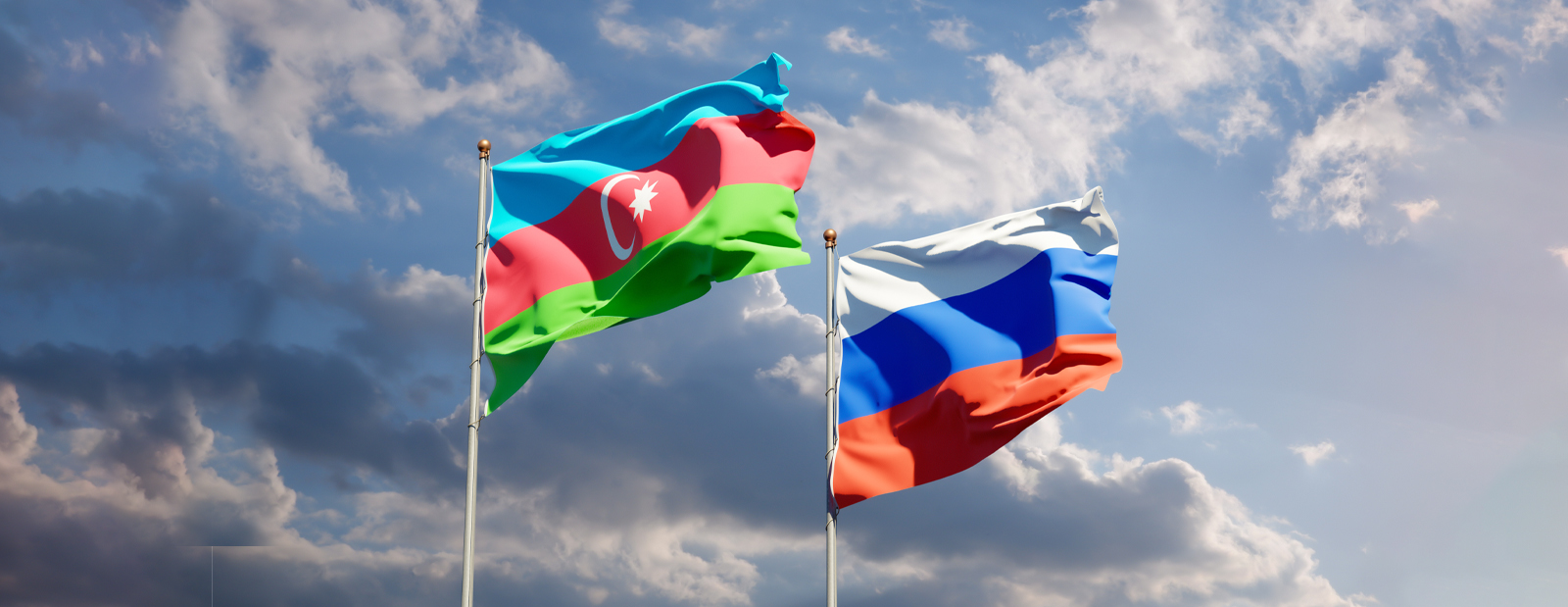Search

Publications
Russia Ц Azerbaijan: new trends in economic relations in 2023

Azerbaijan together with Uzbekistan is the leading partner of Russia in the Southern Caucasus and the leader of the «second orbit» of the post-Soviet integration (as a participant of the CIS free trade area within the belt of the RF neighbor-countries).
At the same time, the averaged classification of the bilateral relations as a strategic partnership often does not allow to see the content required for detailing; it contains both common and unique elements of bilateral interaction between Moscow and Baku.
In particular, in the absence of official dialogue with the EAEU at the Eurasian Commission level (except for some periodical contacts of experts and bureaucrats), Baku is adjusting the EAEU standards in its trade and industrial policies.
To a certain extent, it is inevitable taking into account the following factors:
- The level of trade of the goods of L2 and L3 of processing (from petroleum chemistry to agriculture processing);
- The growing export and import of services with the EAEU member countries;
- The joint communication projects with the EAEU/CIS member countries;
- The growing role of Azerbaijan as a transit hub for supplies to the Russian Federation in the situation of foreign trade restrictions.
Let us add the shared security agenda to this mosaic: Baku is not an CSTO member country, however, the strategy of interaction with Moscow has many common areas is much fewer conflicts compared to the interaction between Russia and Armenia (the CSTO member country). A surprising paradox has emerged in this sphere: Azerbaijan is more and more drifting towards the area of contradictions with the USA common for Russia, Turkey and China (from the security in Ukraine to the future of Palestine), potentially forming a single military and political group with the Eurasian powers; simultaneously, Armenia being the CSTO member country is more and more drifting towards the North Atlantic group approaching the line of cutting its relations with the CSTO.
Eventually, a unique structure has been formed allowing for viewing Azerbaijan as the most important partner of Russia for social and economic integration within the «nearest neighborhood» belt and a practical ally in the extended security sphere.
Key features of the «second integration orbit»
The following features are key for the «second orbit» countries (outside the EAEU):
1. Availability of the fast-track customs corridor (recognition of the results of the customs control in one country).
2. Availability of «authorized economic operators» allowed to import goods within a simplified notification procedure.
3. The manufacturers from the partner country have access to the database of State Russian Standards (GOSTs). In the fall of 2023, the regulator from Azerbaijan (the State Service for Anti-Monopoly Supervision and Consumer Markets Control) received the permit for accessing 39,123 documents of Rosstandard (Russian Federal Agency for Technical Regulating and Metrology) to assure direct application of Russian GOSTs in the territory of Azerbaijan.
4. Availability of the common system for food safety control including mutual monitoring of livestock breeding, and common market of vegetable and grain seeds.
5. Mutual coordination of exporting certain key commodities being the main sources of hard currency in-flow in both countries. In particular, this is coordination in the fuel and energy sphere including exporting the commodities via a network of joint ventures and subsidiaries. Major Russian oil-and-gas companies are operating in Azerbaijan: Lukoil, Gazprom, Rosneft, and they are open for expanding the contacts. In 2023, a series of new transit initiatives came up (reverse flows of Russian oil via the Tikhoretsk Ц Baku pipeline), as well as initiatives to refine oil using the Azerbaijan refinery named after Heydar Aliyev.
Overall, the above-listed factors allow for the manufacturers in such partner countries to quickly access each otherТs markets. For Azerbaijan it means facilitating access to the Russian market similar to the EAEU member countries.
Russian already has such partnerships effectively working with Turkey (starting from 2013) and with China; partnerships with Azerbaijan, Uzbekistan and Iran are in the testing mode; the negotiations on the lists of authorized economic operators with Syria and India are underway. Most likely, the relations with Brazil and some African countries will be developing under the same scenario.
Currently, there are seven Russian authorized economic operators permanently working with about one hundred of Azerbaijan companies.
It means that at least 20% of products supplied to Russia from Azerbaijan may be cleared through the «green customs corridor» established by the parties.
The fast-track customs corridor assumes the reduction of the administrative burden and of the frequency of customs control measures applied to the goods moves between the two countries having executed the respective agreement. Such an agreement may cover both all the goods or their certain categories.
In October 2023, the representatives of the Food Safety Agency of Azerbaijan visited Russia and learned about the Russian system of veterinary supervision and the capabilities of the Federal State Information System VetIS.
The specialists from the Agency also visited one of the milk-processing factory to learn about the procedure of certifying the exporters. In addition, they visited the labs of Rosselkhoznadzor (the Federal Service for Veterinary and Phytosanitary Supervision) and studied product monitoring tools, the end-to-end process of tracking the goods and the digital solutions for that were provided.
The representatives of Russian and Azerbaijan agencies agreed to explore the possibility of integrating the veterinary supervision information system to prevent movement of goods not in line with the mutual requirements.
Thanks to the above-listed factors, the trade turnover between Azerbaijan and Russia in January Ц October of 2023 made USD 3,443,055,340 exceeding the YoY indicator by 20%.
According to Azerbaijan Customs, trade operations with Russia constituted 7.91% of the total foreign trade turnover of Azerbaijan in January Ц October of 2023, and the Russian Federation maintained the position of the third biggest foreign trade partner of Azerbaijan.
Export of products from Azerbaijan to Russia accounted for USD 961,039 mln (33.6% growth). Overall, the supplies to the Russian market constitute 3.27% of the total export from Azerbaijan (Russia is number five from the standpoint of the key categories of goods exported from Azerbaijan).
Food safety aspects
The turnover between Azerbaijan and Russia in agricultural products starting from the beginning of 2023 constituted USD 959 mln.
By the current stage of business coordination, the trade balance of the two countries pertaining to agricultural products was practically equalized. In monetary terms, the supplies from Azerbaijan to Russia accounted for USD 465 mln, and from Russia to Azerbaijan Ц for USD 494 mln.
According to Rosselkhoznadzor, Russian manufacturers increased the volumes of grain and flour, livestock, poultry meat, eggs, potatoes and other products exported to Azerbaijan. The volumes of shipments from Russia with respect to beetroot and cane sugar, soybean cake and oil meal, maize oil are also growing.
In its turn, Azerbaijan increased the supplies of dairy products, pome and stone fruits, nuts and traditionally leading categories in exports to Russia Ц tomatoes, традиционно сохранил лидирующие позиции по экспорту в –оссию томатов, persimmons, apples and table potatoes. In the middle of November, the negotiations on opening the Russian market for importing table eggs from Azerbaijan poultry farms finished.
In several categories Azerbaijan maintains the monopoly in supplies to the RF. In particular, the main export volumes of apples from Azerbaijan go to Russia [in 9 months, Azerbaijan exported 48,107 thou tons of apples (27% growth) for the amount USD 31,521,063 (26% growth)]. Overall, Russia accounted for 88.8% of apples exported from Azerbaijan. Besides apples, Azerbaijan manufacturers have the leading positions in supplying tomatoes, persimmons, cherries and black cherries to Russia.
During January Ц September, Azerbaijan remained the main importer of Russian cattle and small ruminants having significantly increased these volumes (14.7 times growth for cattle, 7 times growth for small ruminants).
With account of the volumes of bilateral trade, Rosselkhoznadzor and the Food Safety Agency of Azerbaijan agreed by the beginning of 2024 to undertake several measures to optimize the controls of mutual supplies. These two government agencies are consistently developing the algorithms to acknowledge the parity of surveillance systems of both countries. In the middle of November, Sergey Dankvert, the Head of Rosselkhoznadzor, and Ali Asadov, the Head of Azerbaijan Government, signed the protocol of joint measures to counteract the cross-border animal diseases. They will allow for systemic refusal from a number of controls and perform the trading under the guarantees of the agencies.
Another aspect of food safety is an independent technological base for agricultural machinery.
The assembly of a number of types of agricultural machinery from Russia and Belarus is organized at the car-building enterprise in Ganja. As per the statistics, in January Ц October Azerbaijan produced 580 traction engines (9% growth). A number of foreign companies having exited Russia are trying to find the opportunities for anchoring in the industrial clusters of Azerbaijan, thus restoring their access to Russian customers.
In August, the North-Western region of Azerbaijan (Agstafa) hosted the exhibition of agricultural machinery «Russia Ц Azerbaijan 2023», where 14 Russian manufacturers presented their machinery and equipment.
Summary
Moscow and Baku learned to interact effectively or at least to not interrupt this process during the crisis years of 2020-2023, when the transformations of the global economy and politics continued to dislodge the geopolitical platforms, which used to be unshakeable. Hence, this line of interaction between Azerbaijan and Russia performs both as a «new axis», and as a fragment of the new major arc of stability in Eurasia geographically coinciding with the North-South meridian, the strategic development vector of Russian foreign policy.







